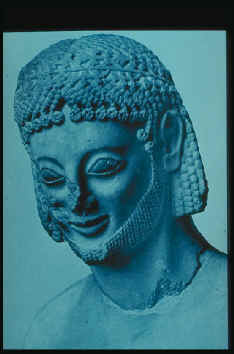| Books 17-24
1. How might what happens to Achilles upon learning of the death
of Patroclus be seen as a ritual transformation?
2. What does the imagery on Achilles new shield mean?
3. What does Achilles fighting with the river Skamandros mean?
4. What does the death of Hector mean? (pay close attention to
the armor)
5. What does the games of Book 23 indicate about the structure of
a new society? Look carefully at the chariot race? Why
do the contestants announce in the order they do? What is the
actual order of the finish? the adjusted order? the
order of prizes?
6. What does the meeting with Achilles and Priam in Book 24
indicate about the possibility of human society?
|
